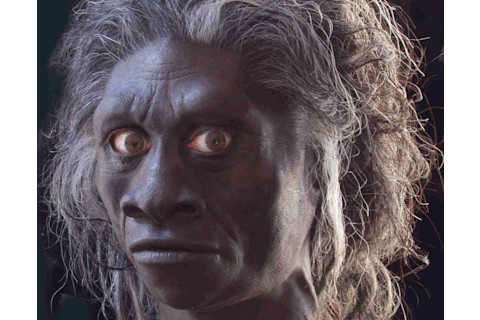
So let’s recap: It’s been almost eight months now since scientists announced the discovery of Homo floresiensis, the diminutive people that some claim belong to a new branch of hominid evolution and skeptics claim were just small humans. We seem to have entered a lull in the flow of new scientific information about Homo floresiensis. The last thing we heard from its discoverers came in March, when they published scans of the Homo floresiensis braincase, which bolstered their case that the skull they found didn’t happen to belong to someone with a birth defect. The skeptics have made various noises about evidence that the fossils are indeed pathological, and thus can’t be the basis for recognizing a new species. They have told reporters about their visits to pygmies who live near the fossil site on the Indonesian island of Flores. But they have yet to publish any of this in a scientific journal, where their claims could be put to some serious scrutiny. For example, you can’t refute the claim that the fossils are a separate hominid species by showing that living pygmies on Flores are very short. You also have to deal with the odd body proportions of Homo floresiensis, such as its long arms. Perhaps these are pathological too, but no one has gone on the scientific record yet.
For now Homo floresiensis junkies like myself have to content ourselves with scraps: the various details of the nasty battles between the discoverers of the fossils and their foe, Teuku Jacob, grand old man of Indonesian anthrolopology and lead skeptic. An article in today’s Los Angeles Times, offers the latest overview of the squabbles. If you are new these misadventures, it’s pretty good way to catch up. For those who keep up on this stuff, I see a couple interesting new tidbits.
1. A lot of Teuku Jacob's arguments against this being a new species seem wacky to me, at least as they've been presented in the press. In the LA Times, he "argues that evolution cannot 'go backward' and produce a human with a smaller brain." Perhaps Jacob will eventually make this case at length in a scientific paper, but for now I'd just say that there's no Law of the Perpetually Increasing Brain that I'm familiar with. In fact, the mammal brain is surprisingly malleable over the course of evolution. This afternoon I will try to write up a post on a new study that makes this clear. UPDATE 6/16: Read it here.
2. Teuku Jacob took possession over the bones for a few months, and when he returned them, their discoverers claimed the delicate fossils were damaged. The damages included what appeared to be an attempt to reconstruct the jaw.
In the LA Times piece, one of the co-authors of the original Homo floresiensis report accused Jacob of trying to make the skull look more like a member of our own species (the other hominid species that lived in Indonesia, Homo erectus, had a weaker jaw).
For the first time that I’m aware of, Jacob admits that he was trying to “improve” the skull. "We tried to improve some of the things," he acknowledged. "We didn't damage any bones. Actually, we improved some." Improve, or match your preconceptions?
3. As if this wasn’t bad enough, the controversy has now resulted in a complete halt to digging in the cave where the original fossils were found. Apparently the team that discovered the fossils didn’t get the proper permits from the Indonesian Institute of Science, although they believed they had. Now the Institute has decided that digging should stop, so that the dispute won’t get worse. While I can only judge this decision from a brief summary in a news article, the logic behind it baffles me. I doubt that forcing scientists to cool their heels while clues to what could be one of the most important discoveries in human evolution wait to be found on Flores will put them in a more pleasant mood. What’s more, digging in the cave could yield evidence that can settle this dispute once and for all—such as DNA, the odds of finding may have gone up thanks to the invention of new methods for culling it from the environment.
It's frustrating to know that we could be enjoying a scientific feast, when all that's on the menu for the foreseeable future are scraps like these.













